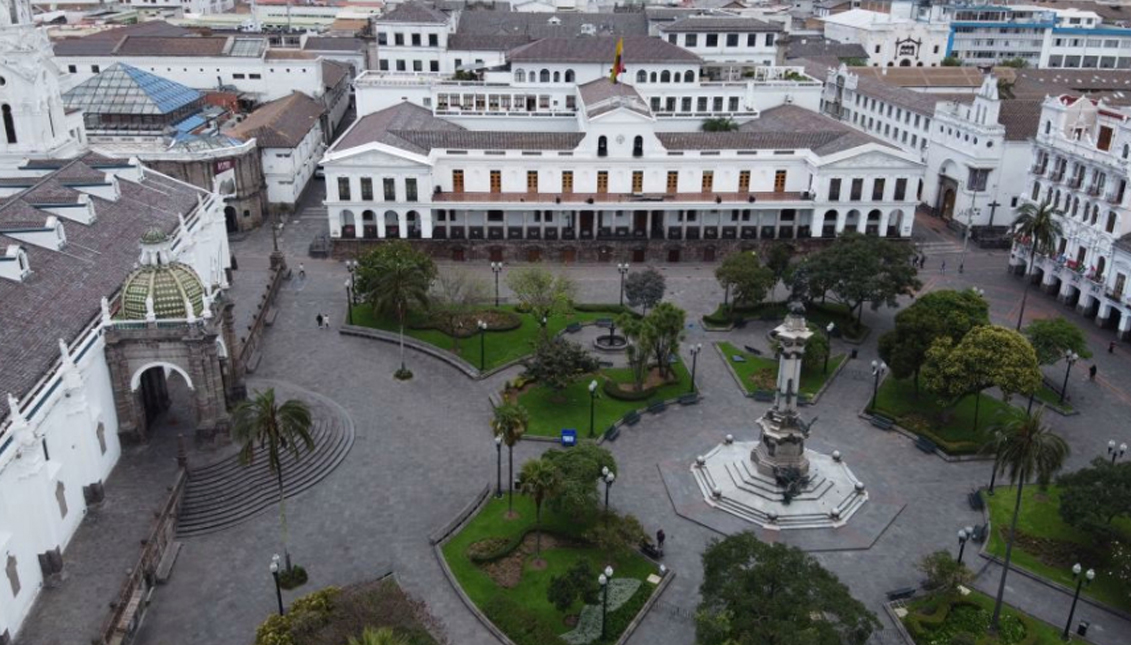
Ecuador to restructure $17.4 billion of debt
With support of enough bondholders Ecuador will be able to pay off part of its foreign debt and focus on the pandemic instead.
Ecuador requested a vote from its creditors two weeks ago to determine the future of their external bonds worth $17.4 billion.
President Lenin Moreno’s government offered to exchange 10 bonds maturing in 2022 and 2030 for three bonds expected for 2030, 2035 and 2040.
Ninety-eight percent of creditors voted in favor of the restructuring proposal.
The minister of economy and finance Richard Martínez has said although the plan received resounding support from the creditors who hold a majority of the original 10 bonds, he will extend the voting period for a week so the remaining creditors can sign on.
The finance ministry has stated that Ecuador will not be realizing any interest payment for the remainder of 2020, but those who vote later will lose the opportunity to collect an interest payment.
“Those people who did not vote in favor in this part are treated differently from those who have already voted. Those who have already voted receive an interest payment, for example, which we have not paid during this period, but those who would vote until Friday do not receive that payment,” said Martínez.
President Lenín Moreno celebrated the results of the renegotiations on Twitter.
¡GRAN NOTICIA para #Ecuador!
— Lenín Moreno (@Lenin) August 3, 2020
Alcanzamos la mayoría necesaria para renegociar los bonos de nuestra deuda externa.
Con esto, liberamos recursos para la protección social y reactivación económica.@RichardM_A dará detalles en las próximas horas. #JuntosEcuador#NegociaciónDeuda
The debt accord will allow the South American country to renegotiate a third of its foreign obligation, which totals $51.9 billion according to CEIC Data.
Ecuador’s total international debt is worth nearly half of their annual gross domestic product, which was $108.4 billion in 2018.
The country’s external debt has been steadily rising for the past decade and this is in part because of a drop in oil prices.
Former president Rafael Correa took office in 2007 when the oil-rich country was basking in the benefits of high oil prices.
It allowed him to invest in ambitious infrastructure projects completed in the hope they would rapidly increase the developing country’s GDP.
Moreno wanted to continue the projects, but with global oil prices plunging in 2014 and then hitting historic lows in 2020, he had to seek foreign alternatives.
One of those was the International Monetary Fund (IMF), who suggested Moreno faze out the country’s oil subsidies which had been in place for 40 years.
After the president ended the subsidies on Oct. 3, protests erupted across the country.
The protests grew when indigenous leaders got involved and the scenes were so violent in the capital city, Quito, that Moreno relocated to Guayaquil.
An agreement was reached between the president and the indigenous leaders on Oct. 14 to reinstate the subsidies.
RELATED CONTENT
The hope is that now, in theory, with Ecuador resolving a significant part of its debt, the government can now put more attention on bringing down the spread of the novel coronavirus within their borders.
They negotiated with bondholders in April to delay interest payments through August so $811 million could be allocated to fighting the pandemic.
With a population of 17 million people, Ecuador has over 87,000 cases and is approaching 6,000 deaths.
The country made international headlines in April for how the pandemic was overwhelming their health care system.
Images circulated of bodies being left in trash bags to rot in streets mainly across the city of Guayaquil. Both hospitals and morgues in Ecuador’s largest city reported being strained of resources and having no space for more victims.
The relationship between the Ecuadorian people and their government has led to a series of massive protests in the last year and if they continue, it is sure to worsen the spread of the virus.
In May, the government announced their intention to close state-owned companies and cut public sector salaries.
Thousands took to the streets in opposition although there was a national lockdown.
The measures that were put in place in March included a national curfew that had Ecuadorians stay home from 2 p.m. to 5 a.m. unless they had essential activities.
Penalties for breaking quarantine included fines or imprisonment.
Ecuador is expected to hold a general election next year and Moreno has not announced if he will partake in it, yet is eligible for reelection.
If he does participate, he can tout the renegotiations of Ecuador’s foreign debt, but voters will remind him that much was left to be desired in his handling of oil prices and response to COVID-19.











LEAVE A COMMENT:
Join the discussion! Leave a comment.